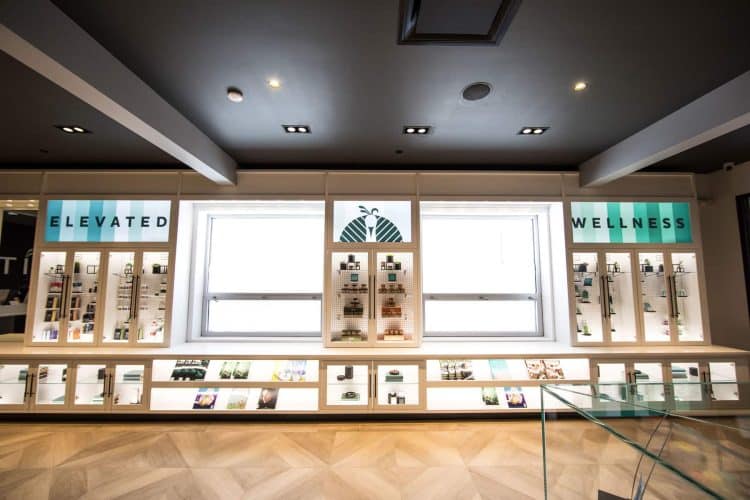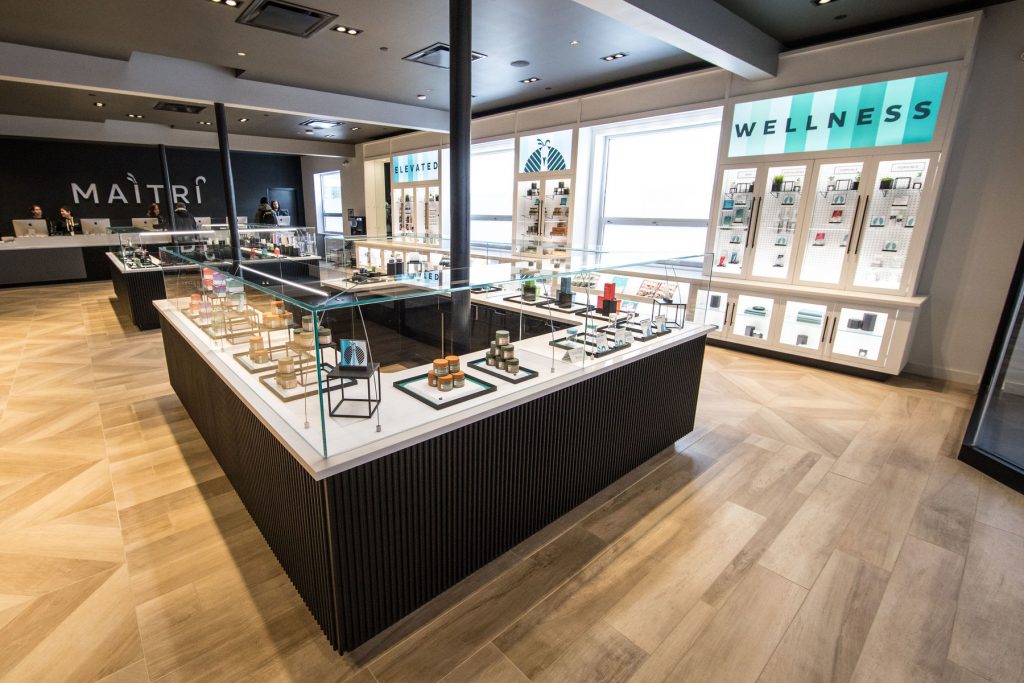When Pennsylvania selected which grower/processor applications to approve from a sea of who knows how many entries, they narrowed their search to the final 25. While some were constructed using know-how and funding from outside of the state, others were homegrown. One company representing the latter is Maitri Medicinals, a Pittsburgh-based company with a dispensary and soon-to-be-opened growhouse and product manufacturing facility. I spoke with Corinne Ogrodnik, Co-Founder of Maitri Medicinals, about their entry into the nascent PA cannabis industry.
Corinne’s husband Joe has been a long-time cannabis advocate, and was evaluating drug policy with researchers at Carnegie Mellon University. As he researched and evaluated the growing support of cannabis legalization across all demographic categories of legalized programs, his interest in the industry-side of cannabis blossomed. And in 2014, Corinne was suffering from chronic neurological issues. “I was interested to see if cannabis could help me,” she explained. “but I was leery to try it. I wanted to know what was in the product.” On a trip to Colorado that winter, knowing she could access tested products, Corinne tried cannabis. Within 24 hours, her life dramatically changed.
“My symptoms improved so drastically that I became committed to cannabis, so much so, that Joe and I even considered moving to Colorado. But based on the state’s residency requirements for operators, we would have had to reside in Colorado for two years before we could apply for a license.”
So, they stayed in Pittsburgh, and their interest in entering the cannabis industry continued to percolate. In time, they saw the blatant writing on the proverbial walls, as the foundations of illegality began to crumble. “John Hanger’s gubernatorial campaign provided a strong medical cannabis platform, so we knew that a medical cannabis industry was a likely possibility in PA”, Corinne explained.
What’s been striking in PA is the mushrooming acceptance of legalized cannabis, especially in southwestern PA where Maitri is located. “This is a very medically-focused region,” Corinne commented. And while some of the nascent patient registry is likely due to PA’s foresight in adding opioid addiction to the approved medical conditions for which prospective cannabis users can obtain a medical card, Maitri’s clientele comes from all walks of life. “There are a lot of patients that come into our Uniontown location who are above 50 years old, and many are veterans”, Corinne offered.
One seemingly backwards philosophy adopted early on by PA regulators was the ban of cannabis flower sales. Thus, patients new to cannabis started their medical regiments using concentrates, although products were also available in pill form. Once dispensaries were permitted to sell flower, more people climbed aboard the flourishing movement. Despite the obvious glut of legal cigarette smoking, PA regulators frowned upon lighting up a joint. (In fact, it’s still illegal to smoke cannabis; medical card-carrying members must vape it.)
The esteemed Dr. Sue Sisely, however, passionately led an advisory board that highlighted a patient’s ability to successfully titrate their dosing off of cannabis flower. Serendipitously, PA lawmakers listened, and dispensary lines lengthened, with patients willing to wait an hour or so to make their purchases. Nowadays, however, savvy dispensaries like Maitri have adjusted protocols to quicken transactions, and Maitri is known as having a massive menu.
“We have over 400 products on our menu,” Corinne provided. “We like options, and therefore, we like to provide as many choices as possible.” And for Maitri, the grass is getting greener, as their growhouse and processing facility is slated to open this summer.
During our discussion, and after taking a look around, it was easy to differentiate the vibe Maitri radiates. The space is a harmonizing mix of professionalism without sterility, passion for the plant, and education. And while some in the industry scoff at the concept of sending in more product to be lab-tested than the law mandates, Maitri welcomes it, and plans to test every batch to ensure proper quality. And, hopefully, when the time is right, and alongside other licensees, Corinne and her team at Maitri will have the opportunity to provide Pennsylvania regulators with evidence and data to abolish the anti-organoleptic motivation for not allowing patients to imbibe the fragrant bouquets of their flowers. So, maybe, just maybe, the concentration of volatile terpenes in the greater Pittsburgh area atmosphere will continue to strengthen. Amen to that…















